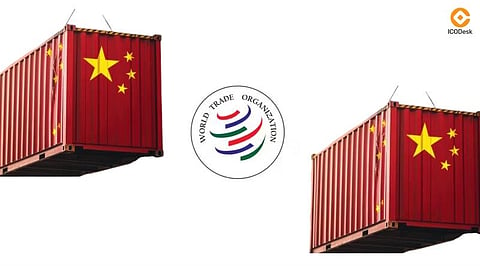

China declared that it will no longer demand Special and Differential Treatment (S&DT) in the next World Trade Organization (WTO) talks. Premier Li Qiang confirmed the decision in a meeting at the United Nations General Assembly, in which he stated that China will be a responsible major developing country.
This announcement follows the move by WTO Director-General Ngozi Okonjo-Iweala, who said it represented a milestone in global trade reform. She stressed that China's attitude indicates that it favours the establishment of a level playing field in the multilateral system.
S&DT provisions give developing countries more time to implement trade rules, technical assistance, and other benefits. Critics, especially in developed economies, claimed that China could not continue enjoying such benefits despite being the largest merchandise exporter in the world.
This move by China may change the dynamics of developing nations, particularly in Africa and Asia. By sacrificing S&DT, Beijing gives poorer economies the power to demand more specifications in the negotiation processes. This is likely to impact fisheries subsidies negotiations, where China has been considered the largest global subsidizer.
The shift will also have future consequences for agricultural and industrial subsidies. Countries with smaller economies can now have higher bargaining power to insist on long-term support arrangements within WTO agreements.
The WTO members have discussed the status of China as a developing country for a long time, and it is based on a self-declaration. While the World Bank has classified China as an upper-middle-income economy since 2010, Beijing has retained its developing label within WTO structures. The recent ruling is an adjustment without officially forsaking that status.
Okonjo-Iweala described the declaration as a landmark step and said it would help continue modernizing the WTO. She pointed out that the ruling reinforces the debates on fairness and efficiency in the international trading system.
Advanced economies such as Washington have continually claimed that China should forego the advantages enjoyed by smaller economies. Beijing's decision not to seek new special treatment can address some of the old trade tensions and help to further reform.
The move indicates a transition of roles between the key emerging markets and the possibility of a new direction in the WTO talks. Nevertheless, it is not clear how it will affect China's influence in coalitions of developing countries in the long run.